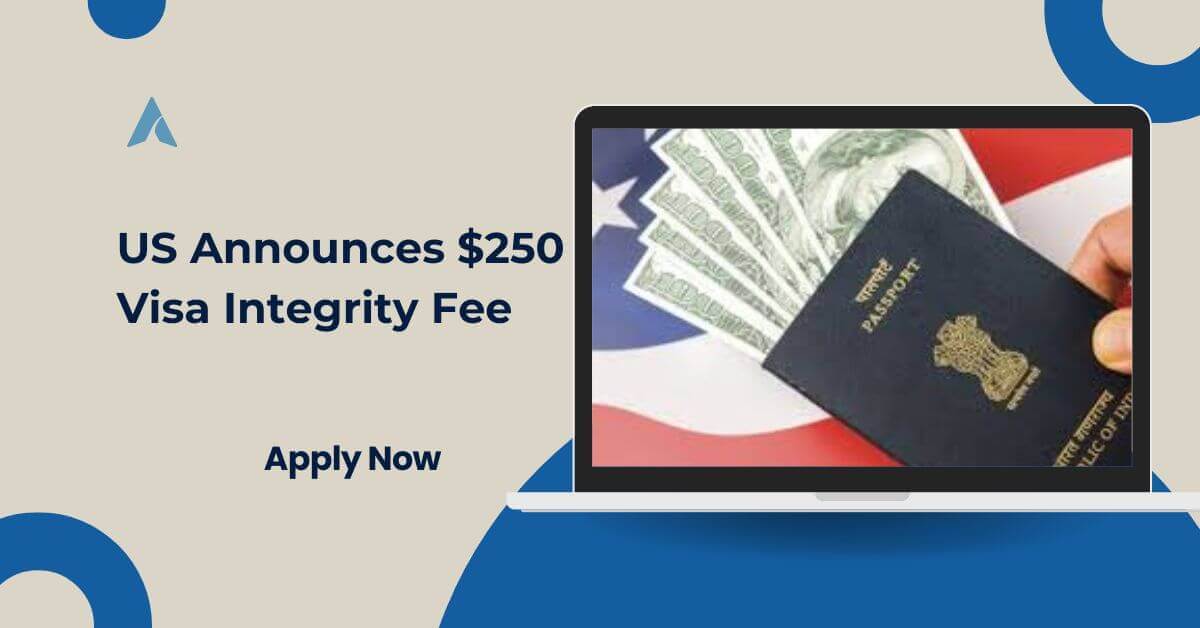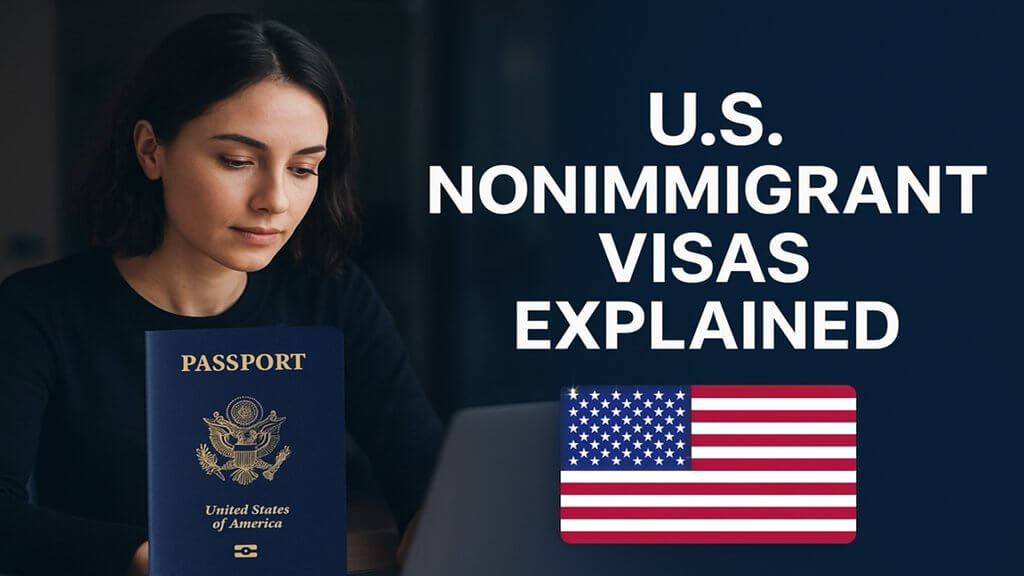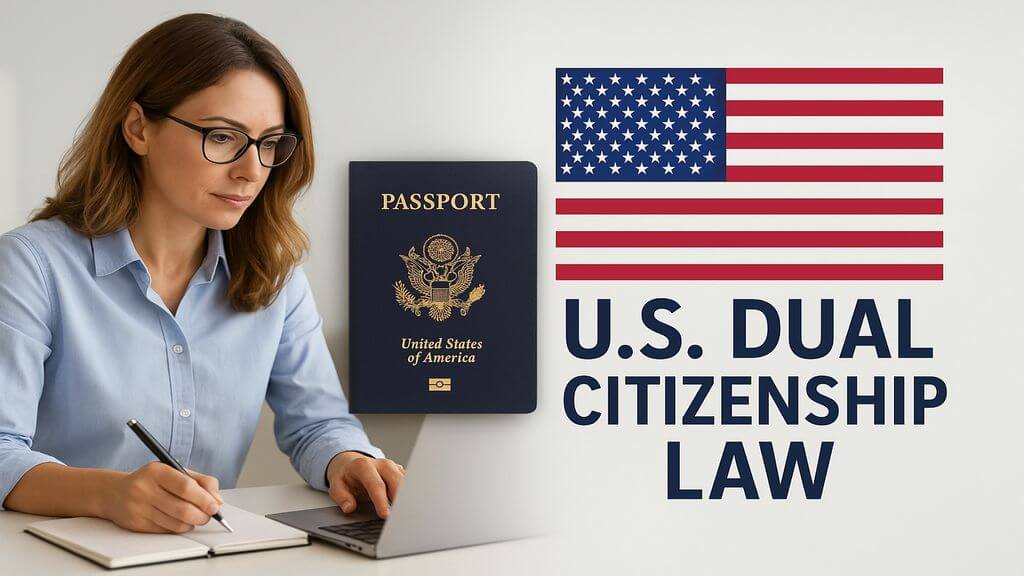The United States government has announced the introduction of a new $250 Visa Integrity Fee, which will take effect starting October 2025. This fee aims to enhance the integrity and security of the visa application process by supporting additional screening measures and fraud prevention efforts. The fee will apply to most visa applicants and is designed to strengthen the U.S. immigration system while ensuring that visas are issued to legitimate applicants. Travelers planning to apply for a U.S. visa from late 2025 onwards should be prepared for this additional cost as part of their application process.
What Just Happened?
The “One Big Beautiful Bill Act (H.R. 1)” was discreetly signed into law by the U.S. government on July 4, 2025. This legislation legally mandates the implementation of a Visa Integrity Fee. Although the headlines were obscured by other political noise, this action caused alarm among immigration counsel, universities, and employers across the globe.
This implies that, in addition to the current MRV visa fees and SEVIS charges, an additional $250 fee per visa may now be required for those who intend to study, visit, work, or accompany someone to the U.S.
Who’s in the Crosshairs?
This new fee targets a wide range of visa applicants:
- Tourists and business visitors (B-1/B-2)
- International students (F-1, M-1) and their spouses/children (F-2, M-2)
- Exchange Visitors (J-1, J-2)
- Skilled Workers and Trainees (H-1B, H-2B, L, O, TN, H-4 dependents)
- researchers, professors, tech specialists, caregivers, performers, and others
Even family members and children will be charged the same $250 fee individually. A family of four? That’s $1,000 extra, just to receive your visa stamps.
Check Also: Myths About Undocumented Immigrants in U.S. – A Guide
Who’s Safe?
You’re off the hook only if:
- You are a national of a country that participates in the Visa Waiver Program and are entering with an ESTA.
- You are a Canadian or Bermudian national who is entering without a visa.
- You are submitting an application for a diplomatic visa (A or G).
How Much, and How Often?
The Visa Integrity Fee is a fixed fee of $250 per individual for each visa issuance. This implies that each applicant, irrespective of their age or relationship to other applicants, is required to pay the full amount. Families that submit applications jointly will be required to allocate funds for each member individually, as there are no family bundles or group discounts. Starting in fiscal year 2026, the fee will be adjusted annually in accordance with inflation, which implies that the cost may increase annually.
When and Where Will You Pay?
Here’s the unsettling part: the exact process hasn’t even been revealed yet.
- The fee will be collected only after the visa has been authorized, at the issuance stage.
- You will not be required to pay the fee if your visa is denied; however,
- Upon approval, you will be required to submit payment before the embassy releases your passport.
Agencies like DHS and the State Department have not published detailed regulations on how or when the collection begins — adding even more uncertainty to the process.
Can You Get a Refund?
Technically… maybe.
If you:
- Comply with all immigration regulations in the United States.
- Do not work illegally or extend your stay.
- Depart the United States on time or lawfully extend or adjust your status.
Then you might be eligible for a refund after your visa expires. But the refund process is not defined yet — and experts warn it could be so complex that most people won’t bother.
When Will It Take Effect?
Although the Visa Integrity Fee was officially signed into law on July 4, 2025, the precise date on which collection will commence is still unknown. Nevertheless, immigration analysts predict that the implementation could commence as early as October 1, 2025, which coincides with the commencement of the U.S. federal fiscal year. It is imperative that applicants closely monitor updates from the Federal Register and official U.S. government sources, as implementation could be announced at any moment, as there is still a window of uncertainty until formal regulations are published.
Quick Overview:
| Category | Details |
|---|---|
| Fee Name | Visa Integrity Fee |
| Amount | $250 per person per visa issued |
| Applies To | Most non-immigrant visa categories |
| Exemptions | ESTA travelers, Canadians, Bermudians, diplomats |
| Payment Due | After visa approval, before stamping |
| Refundable? | Possibly, post-visa expiration if fully compliant |
| Enforcement Start | Likely from October 1, 2025 |
What You Should Do Right Now?
- Be sure to account for the new fee when recalculating your visa budget, particularly if you are applying with dependents.
- Do not delay—if you intend to submit an application in the near future, attempt to circumvent the implementation process before it becomes operational.
- Monitor announcements by visiting the websites of the Department of Homeland Security (DHS), the United States Citizenship and Immigration Services (USCIS), and your local U.S. consulate.
- If you wish to have any chance of receiving a refund in the future, it is imperative that you meticulously monitor your visa compliance. Document all relevant information.
References:
- https://www.congress.gov/bill/119th-congress/house-bill/1
- https://www.whitehouse.gov/issues/border-immigration/
- https://www.federalregister.gov/documents/2025/07/22/2025-13738/uscis-immigration-fees-required-by-hr-1-reconciliation-bill.
Visit daadscholarship.com for More Fully-funded Scholarships 2026 News.
Frequently Asked Questions:
-
What is the Visa Integrity Fee?
The “Visa Integrity Fee” is a new $250 charge imposed on virtually all nonimmigrant visa issuances, including categories like B‑1/B‑2 (tourist/business), F‑1 (student), H‑1B (work), J‑1 (exchange), and their dependents
-
Why was it introduced?
Part of the “One Big Beautiful Bill Act” (H.R. 1), signed into law on July 4, 2025, the fee aims to enhance visa compliance—especially discouraging overstays and illegal work—by acting as a refundable security deposit if visa conditions are met
-
Who must pay it?
All applicants receiving a new nonimmigrant visa stamp will pay the fee. It is not applicable to:
Visa-exempt travelers (e.g., those entering under the Visa Waiver Program or most Canadian visitors)
Individuals applying for a formal change of status (rather than a new visa issuance) inside the U.S.





